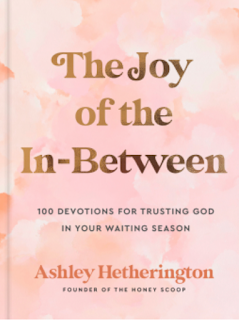★★★★ ☐ The publisher has provided a copy for review.It seems like a lot of previously religious people are tossing in the towel. They're becoming areligious or anti-religious. Sometimes they walk away from settings where they cannot bring their doubts and questions to God or religious leaders. Sometimes it's because of cultish abuse, mental anguish, sexual trauma and other issues.
Anderson gives hope for healing from such traumas. She uses psychology to consider the control issues and abuse that lead to fear and lack of trust in adults and authorities. She does a good job.
I recognize much of what she writes about. My family and my husband's family grew up in a high-control ethnic church where peer pressure (on adults and children) and edicts from the pulpit were prominent. Those defined what was acceptable in theology, recreation, and clothing (hey, no jewelry but brooches; though fancy hats with feathers and other ornaments were ok).
Preachers defined and warned against interactions "with the world." Any thinking child or teen knew some of the strict prescriptions were a double standard or just made no sense. But we went along with it and carried on as a group.
However, the balance for me was that our family had a personal faith and welcomed questions. We children could ask our parent questions as long as we asked respectfully - no sassing or badmouthing. (I don't consider genuine respect for authority to be abusive; it was healthy and reassuring for kids.) My mom and dad sincerely answered with what they did and didn't know. And they encouraged my brothers and me to search the scriptures for ourselves and pray for guidance.
That worked for me. We left a lot of the cultural baggage and narrow theology behind as university students and adults.
And then we had children who grew up in the next generation of faith. We were much less restrictive but still rule-bound as "strict" parents. So our kids challenged us even more.
We did some weird stuff with dress codes. Ask my daughter about the skirts she wore over her shorts in elementary gym class - what was I thinking? By her teens, I resorted to "wear whatever's modest" for our fashionista, since living in Seattle in the 90s offered grunge clothes in dark, limp, secondhand cover-ups.
"Don't you care what your kids are wearing?" asked people at church. (Nope. "Modest enough, they're not naked," made this mama happy.)
And that happened with other things. Because our own parent allowed us to explore the faith, we gradually shed the culture and unclenched our religion. As parents ourselves, we chose the principles of Love God; Love others as more important than following religious mandates that were not in scripture.
"I hate the dumb rules," said one of our teens of the strict codes of behavior and dress in his private school. "I don't think any of this matters. And I don't want to be a hypocritical follower of Jesus by looking good and being unchanged inside like some of my classmates."
"I think you're right, but you're in a place where it matters to your teachers," I replied. "Definitely don't adopt a fake religion with an unchanged heart. Work out your faith with God ... because God is not afraid of your questions. You made a promise to obey him when you were baptized, so take up your issues with him."
So he did. And he came out not only alive, but with more questions and a thriving robust faith.
I'm sorry for those who were brutalized by abuse. I understand the pain like some of our young peers experienced without the balance of being able to ask sincere questions and develop healthy skepticism against strange old-country habits. They weren't able to assimilate truth while living with weird cultural constraints and autocratic boundaries.
If you're one of those, this book will help you heal. Just don't throw it all away because other stuff got mixed in with scripture. Don't deconstruct to the point where there are no core values left as foundations for growth and abundance.
Always remember that God's not afraid of your questions. The One whose math keeps the planets spinning and the God how hope who renews the ground isn't afraid to let you explore. He cheers your search for what's real and applauds when you leave behind what's been added to his grace, justice, and lovingkindness.
--PS The people Jesus got angry and frustrated with were religious leaders who insisted on adding their burdens to the freedom and liberty of a life with God. Check him out in the eyewitness accounts of his contemporaries in Matthew, Mark, Luke, and John.







































